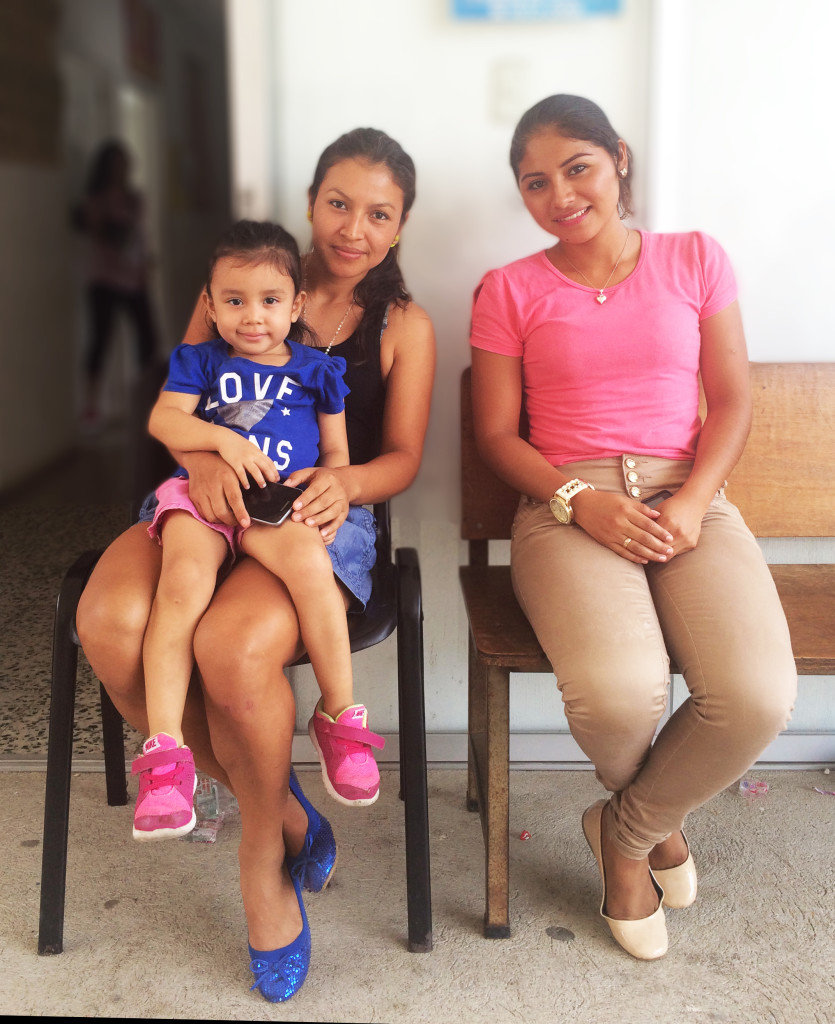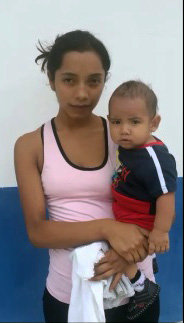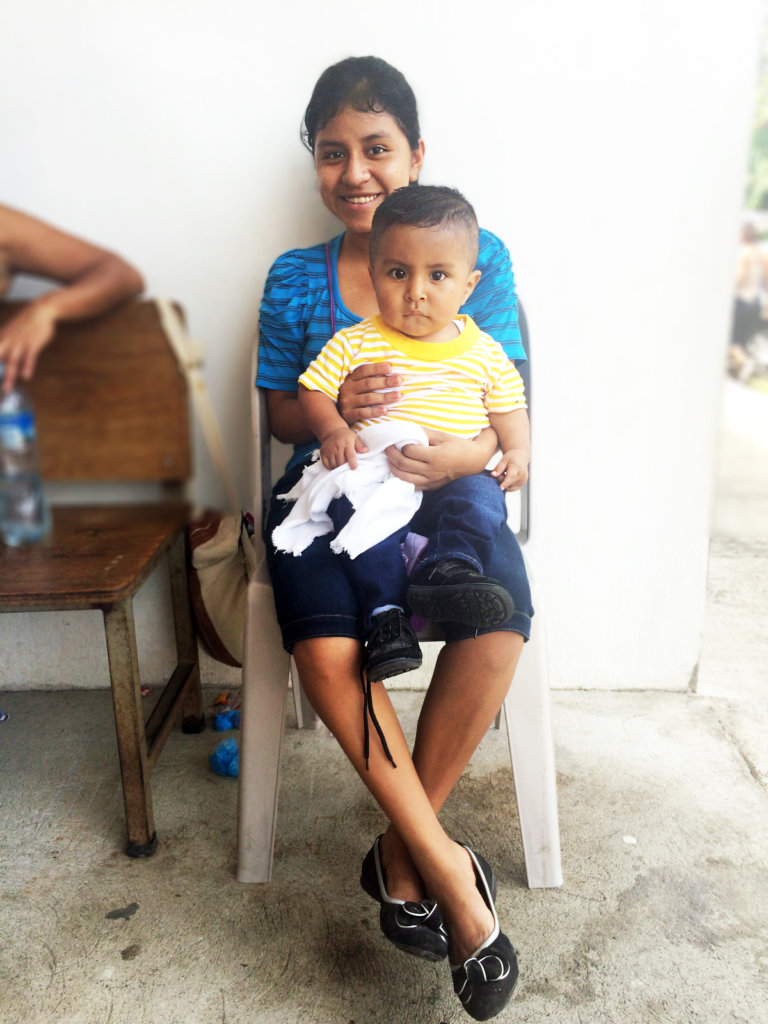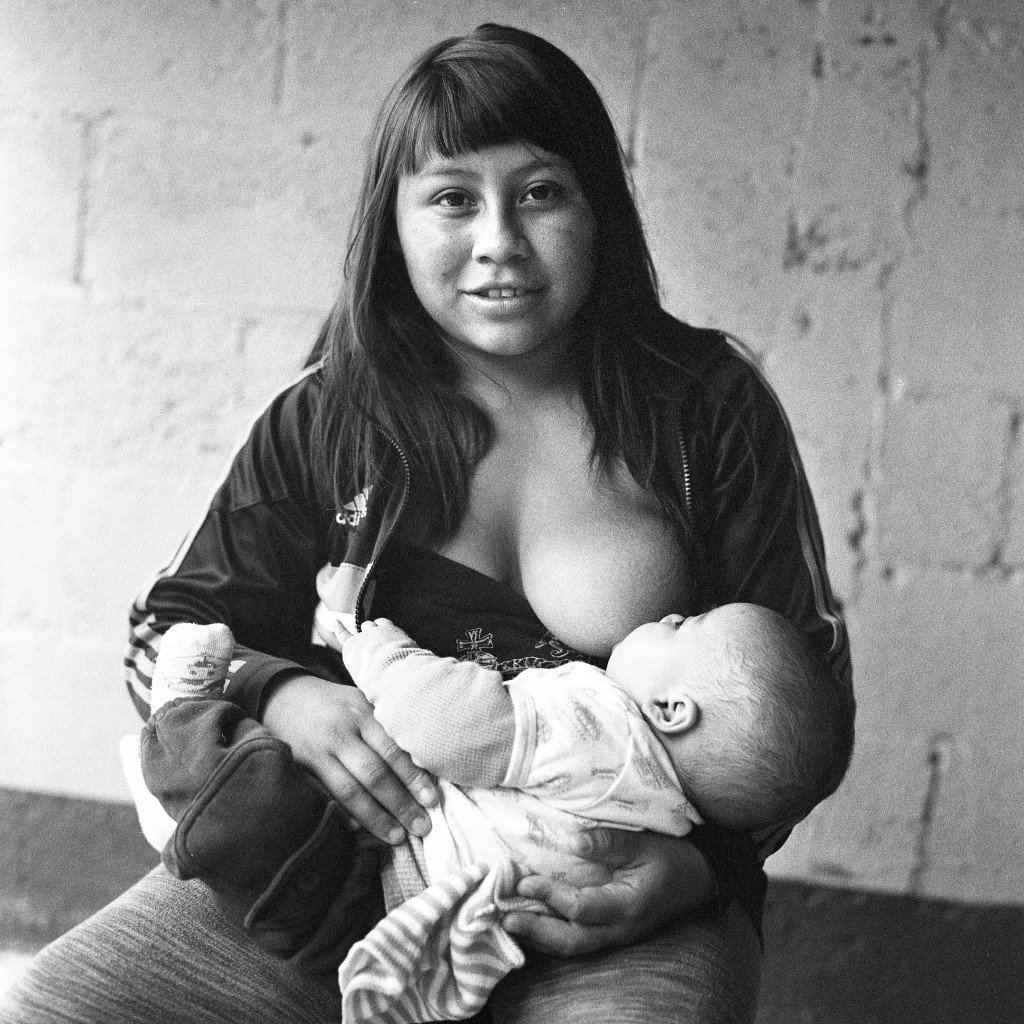By Shaili Zappa | Development Assistant
Life for Teenage Mothers in Guatemala
Adolescence should be a period of discovery and change, of transitioning from childhood to adulthood. In Guatemala the reality is unfortunately a different one, where young girls have to learn to be adults too early. Guatemala has one of the highest teenage pregnancy rates in Latin America, and is the only country in Central America where teenage pregnancy is on the rise. A shocking 58.1% of young women become pregnant for the first time before age 18. This can often be attributed to sociocultural norms, lack of sexual education, and little access to reproductive health services. Unmet need for family planning is the highest among this age group, with 25.6% of young women between 15 and 24 expressing an unmet need.
In a recent mobile clinic in San Francisco Zapotitlán, on the country’s Pacific coast, we met 21-year-old Fabiola. Born in San Francisco Zapotitlán, Fabiola is one of seven siblings. Her mother sold vegetables and fruit in the local market to provide for her children. While her mother was working, Fabiola was in charge of the house, taking care of her younger brothers and sisters, despite being a child herself. As in many Guatemalan families, nobody ever told Fabiola about birth control. When she was 18, Fabiola had her first child. She struggled because on top of looking out for her younger siblings, she now had her own baby to take care of. At 19, Fabiola had her second child. Today, Fabiola is 21 years old and has three children. Raising her three children has not been easy: “Being a mother is a beautiful thing, but sometimes I feel like I can barely manage. I can’t afford to provide my children with everything I’d like to give them, and when they get sick, I can’t sleep because I’m worried about their well-being”.
Days before the mobile clinic, our Field Supervisor Mylin visited women in San Francisco Zapotitlán to talk about their family planning options and encourage them to attend our mobile clinic. Although Fabiola showed up, she was very scared about using birth control. In San Francisco as in many Guatemalan communities, birth control is highly stigmatized. While she was afraid that her community would judge her, Fabiola knew that she could not afford to have more children. After discussing which contraceptive options we could offer her, Fabiola chose the subdermal hormonal implant, which provides up to 5 years of protection. Fabiola said she is grateful to WINGS because now she does not have to worry about becoming pregnant again and she is ready to dedicate all her time to raising her three boys. “WINGS is one of the few organizations that has reached out to women in my community. Many of us do not have enough money to go to a big hospital and pay for expensive services. Once I told the nurses I did not have enough money for the implant, they gave it to me for free!”
Young mothers at WINGS’ clinic
It is not surprising that many teenagers end up being parents at a young age, just like Fabiola. There is little and often incorrect information available to them and very limited access to contraceptive methods or they cannot afford them. Young women face barriers many older women do not, such as biased health care providers who refuse to attend them, claiming adolescents are not old enough for this type of education or services. WINGS strives to be as youth-friendly as possible, training our staff and volunteer promoters on how to provide youth-friendly counseling and providing contraceptive methods free of charge to anyone age 15 to 19. Last year alone 3,429 young women and men came to WINGS for a short-acting or long-acting reversible contraceptive method.
During the same mobile clinic, we met Berta, a 19-year-old girl who carried her 10-month-old baby in her arms. Berta too had never learned about birth control – not even in school where teachers are legally required to provide sexual education. When Berta was 5 years old, her mother passed away. She was raised by her aunts and her father. Her family is very religious, and she was not allowed to ask any questions related to sexuality. She was very surprised when she got pregnant, as was all her family. A friend of her late mother told Berta about the mobile clinic, so Berta came in to get a subdermal hormonal implant. Berta may want to have one other child in the future, but she is happy that she now gets to choose when she is ready for that.
It is through the support of our donors that we can provide reproductive health services to youth in Guatemala, free of cost, so that they can have a chance at a better future. Thank you so much for supporting WINGS in empowering young women in Guatemala to take control of their reproductive lives.
Project reports on GlobalGiving are posted directly to globalgiving.org by Project Leaders as they are completed, generally every 3-4 months. To protect the integrity of these documents, GlobalGiving does not alter them; therefore you may find some language or formatting issues.
If you donate to this project or have donated to this project, you can receive an email when this project posts a report. You can also subscribe for reports without donating.
Support this important cause by creating a personalized fundraising page.
Start a Fundraiser


